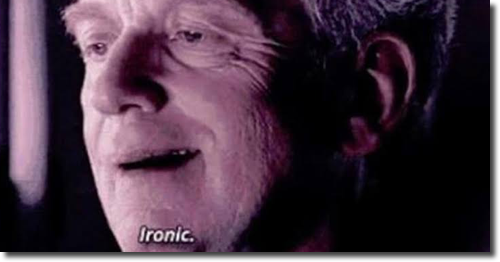The Countdown to Greatness (Part 2 of 4)
(continued from Part 1)
OK … so far we’ve learned:
- Moving forward is far more important than any specific goal per se … (more about that in a moment)
- There are “force multipliers” that can increase the motivational effectiveness of any particular goal (passion … how personal and believable the goal is for you … etc)
- There are also many “hidden pitfalls” in our quest for the goal (“The Passion Trap” … taking a “Moonshot” you’re not mentally ready for … etc)
Before I get to the main thrust of today’s revelation, let’s explore one more hidden pitfall …
Is Shiny Object Syndrome Actually a Problem?
Some of the smartest entrepreneurs I know flit around from shiny object to shiny object. Some new guru comes along and sells them on their magic juju that will solve all of their problems. They should know better (because they too, are selling magic juju and understand its persuasive potency), but they fall for it anyway.

Usually this results in months and years going by without them making ever breaking through to financial freedom.
But, sometimes this is actually useful.
When we’re thrashing about trying to figure out a plan we really believe in:
Sometimes seemingly “better” opportunities will arise along the way …
Sometimes we realize our approach was genuinely wrongheaded …
Sometimes inspirational lightning strikes and we “honor the muse” by heading the call …
And some even manage to move feverishly from project to project – without committing to any long term major goals at all – and become quite successful by the average man’s standards. It’s rarer, but it happens.
(If that’s all you want, and you’re willing to sacrifice the benefits of long term commitment [read on] that’s OK too.)
Just remember: something magical happens when you commit to a course over time. Most of the great fortunes have been built this way. And indeed, most modest does as well. The guy who can chase shiny objects and still come out with his balance sheet in the black is rare, indeed.
So here’s the big question that cuts to the core of it: do you have a history of butterflying from goal to goal without actually attaining any of them?
If yes (and you probably do) … that’s actually a problem.
Here’s part of the solution …
The Discipline of Completion
What if you made – right now – a new unbreakable rule for yourself:
Never begin anything without completing it.
This would do several things.
You’d think very carefully before committing yourself. (Sometimes this is useful. Sometimes not. Read on …)
You’d become conscious of the distinction between hypothetical long term trajectories and short term projects. (The future becomes harder to predict the further into the future you go.)
You’d immediately switch to a bias for shorter term projects vs. long term commitments.
And so on …
Do I think you should do this?
Yes.
But with one caveat: you need to leave yourself enough wiggle room to know when it’s really time to pivot. It’s delicate, though. If you give yourself too much wiggle room you’ll find yourself back in the land of unfinished shiny objects yet again.
How to Earn Compound Interest on Your Time
Now we can talk about the real thrust of today’s secret.
I’m about to tell you something you already know. Be careful.
You’re about to slip into what I call an “I already know that trance”.
It’s one thing to know something. It’s another thing altogether to actually live by it.
So, here it is: habit.
Now Stop!
Did you do it? I bet you did! (“Duh! I already knew that!”)
But I bet you don’t actually live it. And I bet you don’t actually understand it.
Oh sure. You’ve heard all the common (and quite powerful, I might add) platitudes …
“The chains of habit are too weak to be felt until they are too strong to be broken.” – Samuel Johnson
“We are what we repeatedly do. Excellence then, is not an act, but a habit.” - Aristotle
“Habits make a man.” – Common Aphorism
And so on …
Blah blah blah, right? You’ve heard it all before.
But here’s part of the secret sauce in the form of one of my favorite Joynerisms: “Habits are like earning compound interest on your time.”
Compound interest, ok?
“Good” (more about that shortly) habits don’t just maintain things. They don’t just improve things. They improvement things continuously – and those improvements compound.
This is why Navy SEALs volunteer to be tortured mercilessly – for months on end! - in BUD/S training.

They know, in the end, they will be far better versions of themselves than most humans think is possible.
They’re willing to invest the suffering for the compound returns.
In the same way commitment to something major over time has a special magic that opens doors sealed shut to the shiny-object-seekers of the world …
Sticking to habits over the long term … well … it’s like earning compound interest on your time.
But …
The Paradox of Habit #1: Which Habits are Actually “Good”?
If good habits earn compound interest on your time …
Bad habits compound your losses.
Ever observed the life trajectory of an alcoholic? Or a junk food junkie? Or a gossip addict?
It’s an ever-worsening path into yet another kind of “pit of despair”, right?
“So, just replace the bad habits with good ones and we’re golden, right?”
Well … how do you know a particular “good” habit is actually having the intended effect?
Anyone who has dutifully followed an ill-advised diet plan has experienced this paradox. They thought they had a good habit, but no matter how dutifully they followed the protocol – the diet “didn’t work.”
The problem is, “knowing” anything is a stickier philosophical problem than most realize.
“Science to the rescue!”
Are you sure?
Even our most sacred “scientific truths” are constantly being updated and revised. (No surprise to anyone who actually understands science, of course.)
So, what most commonly refer to as “science” (which is sadly often a synonym for “dogma” these days) isn’t the answer, but …
Thinking like a scientist is. See, real science is a constant process of exploration and discovery.
Better still, it’s an open-minded process. We have to be willing to update and revise our hypotheses at all times.
The trouble is, most of us don’t stick to things long enough to really know if what we’re doing is working. (“The discipline of completion” comes in handy here. A minimal time requirement is required to have even a smattering of certainty.)
Even worse, most of us are not precise enough in our observations to know whether it was “the diet” that failed us or some other “confounding variable” that prevented us from achieving our goals. (For example, if you are following a “good” diet faithfully, but are not aware of the effects of stress on fat loss, your results may be stymied.)
So, here’s the bad news: this is always going to be so.
Sorry. There is no magic wand, that will make this paradox go away.
But there is hope. Read on …
“Wait. Mark … I’m totally confused.”
Good.
That’s right where I want you.
I hale the benefits of long term commitment, but from the other side of my mouth speak of “a bias for short term projects” …
I give insight into the miraculous power of habit, but then reveal the philosophical impossibility of certainty.
I give all manner of (seemingly) contradictory advice and leave you with no lifeline.
Perfect!
The Second Act is Always the Saddest
The second act of every good play tends to be where tragedy strikes …
The second movement of any symphony is usually in the minor key …
So, following good form, I’m going to leave you today with more questions than answers.
I’m going to leave you feeling confused.
You may feel more lost than you did when we embarked on this journey together.
But it’s all going to come together soon.
And it’s going to be f-ing glorious!
Tomorrow, I’ll offer a glimmer of hope.
And in the final act …
Triumph!
All the best,
Mark
Mark Joyner
Founder and CEO
Simpleology®



